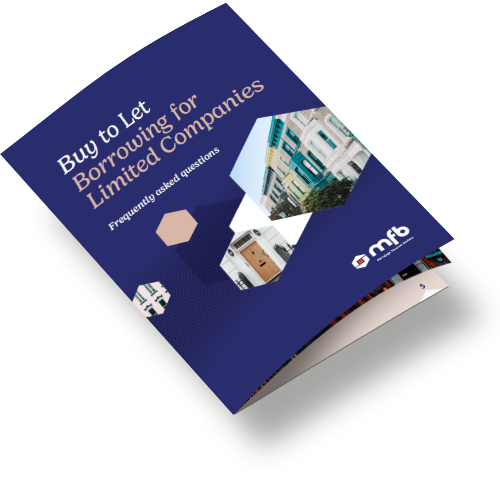Following a record year for Limited Companies in 2023, new data shows market dynamics remain more optimistic for those investing in SPVs than their own name. Below, we look at the latest Limited Company data trends.
According to a Hamptons report, a record 50,004 Limited Companies were set up by landlords last year, up from 48,520 in 2022. What’s more, it looks as though the rise in Limited Company investment won’t slow down any time soon.
In this article, we’re going to answer:
- Are Limited Company mortgage rates more expensive?
- How do landlords intend to invest in 2024?
- Do Limited Company landlords own more BTL properties?
- How profitable are Limited Company portfolios compared to personally owned portfolios?
Are Limited Company mortgage rates more expensive?
Given the latest average mortgage rate data, it’s no surprise that we continue to see a preference for Limited Company investment.
Historically, mortgage rate pricing for Limited Company borrowers has been around 0.5-1% higher than for individuals. However, the pricing difference has decreased drastically over the last year. In July, average 2 and 5-year mortgage rates for individuals were 5.69% and 5.88%, respectively, compared to 5.73% and 5.90% for Limited Companies. The gap was even smaller in June, with average 2 and 5-year mortgage rates for individuals at 5.96% and 6.02%, and 5.98% and 6.03%, respectively, for Limited Companies.
TMW’s Limited Company landlords report tracks several metrics that forecast how the market will shift. Below, we’ll cover landlord intentions, rental portfolio structures, and profitability.
What are your landlord peers up to?
Confidence amongst Limited Company landlords remains higher than that of individuals. 40% are optimistic about their own letting businesses, dropping to 37% when combined with responses from individual landlords. This is a significant increase from Q2 2023 when just 22% of all landlords felt positive about letting property. A further 40% of Limited Company landlords are positive about their rental yields over the next three months, but again, the data from landlords borrowing personally brings this average down to 36%.
Furthermore, Limited Company landlords are more likely to fund their property investments through buy to let mortgages. Their increased activity in the market compared to individual borrowers is evident, with a higher number of buy to let loans on average and a higher average loan-to-value (LTV), at 53% compared to 48% for individuals.
It’s positive to see half of Limited Company landlords (49%) expect to remortgage or complete a product transfer on at least one property in the next 12 months, while a further 28% intend to purchase in the next year. Those investing via an SPV are much more likely to expand their portfolios in the future; 67% intend to purchase through a Limited Company, while just 31% plan to buy in their own name. This reinforces the more positive outlook we’re seeing from those with SPVs, who are potentially benefitting from a more tax-efficient structure than those investing personally.
Limited Company portfolio structures
Your Limited Company landlord peers manage portfolios around three times the average size of those borrowing personally. Moreover, the vast majority of Limited Company landlords are incorporating, with 81% of their properties held in this structure, an increase from just 36% in 2020.
Looking more closely at how Limited Company landlords own their properties, 41% invest solely through an SPV, while 59% own a mix of in their own name and through a Limited Company structure. The average portfolio size for Limited Company landlords is 15.2 properties, 12.3 of which are held in a Limited Company.
Limited Company profitability
The average portfolio value for Limited Company landlords is more than double that of those holding properties personally, at £2.9 million compared to £1.4 million. Despite the same perceived profitability between individual and Limited Company borrowers, Limited Company landlords also benefit from a higher average annual gross rental income, at £146,000, with a typical rental yield of 6.4%.
On average, the typical Limited Company landlord has 17.3 years of letting experience and is 57 years old, five years younger than the average individual landlord. Given this age difference, they are less likely to be retired, with 37% operating as full-time landlords, 25% employed full-time with rental profits as a secondary income, and just 16% retired.
Your Limited Company prospects
If you’re planning your next Limited Company purchase, setting up your first SPV, or just exploring your Limited Company mortgage options, our expert brokers can help. We have a wealth of knowledge and experience working on Limited Company mortgage applications, and our whole of market access means you can have confidence in your property investment decisions.
Search the latest mortgage rates
To see what types of rates you can access, call us on 0345 345 6788 or submit an enquiry here.
